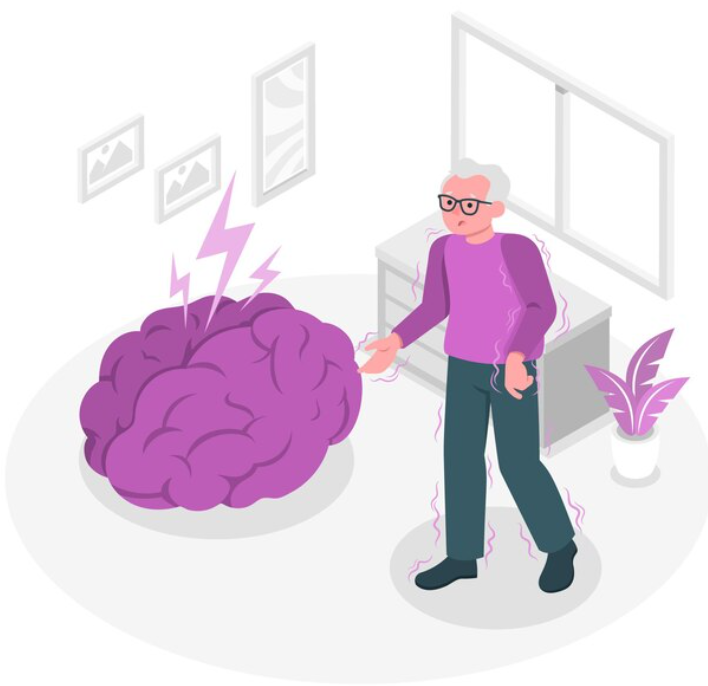
With its seemingly relentless erosion of memory and cognitive function, has often proven an endlessly frustrating challenge in our search for effective measures to mitigate it. But as horizon of science grows, the search for advances in Alzheimer’s treatment also gains momentum reigniting hope to many millions affected by this neurodegenerative disease. In the recent past, groundbreaking research has provided promising therapies with potential to change the Alzheimer’s trajectory. Such breakthroughs are the shining lights of hope, not only for practical treatment modalities but also as an inspiration to patients and their families who struggle with the devastating toll that this condition takes on a daily basis.
Non-pharmacological interventions as lifestyle encompass another side of the fight against Alzheimer’s. there has been an increased research suggesting that factors such as diet, exercise and mental stimulation have a major role in influencing the development of this disease. Lifestyle interventions provide a more comprehensive approach to the treatment of Alzheimer’s recognizing that physical and mental health are not compartmentalized. This article will discuss the holistic aspects of Alzheimer’s care emphasizing that although medical breakthrough is a vital aspect, focus should also be on lifestyle changes in promoting better patient outcomes.
Current and Emerging Therapies in Alzheimer’s Disease
Alzheimer’s treatment traditionally revolves around managing symptoms, as there was no cure. Medications such as cholinesterase inhibitors and memantine have been the cornerstone of symptomatic treatment, designed to improve cognitive function or slow down its decline. However, the landscape is shifting with a focus on understanding and targeting the underlying mechanisms of the disease. Promising developments in immunotherapy, which involve using monoclonal antibodies to clear amyloid-beta plaques—a hallmark of Alzheimer’s—from the brain, are progressing through clinical trials. These advancements represent a potential shift from symptomatic treatment to disease modification, a leap forward in the fight against Alzheimer’s.
Apart from drug therapies, there’s growing evidence supporting the role of lifestyle changes in Alzheimer’s treatment. Diet, exercise, and cognitive training are increasingly recognized as integral components that can potentially delay the onset and progression of symptoms. The concept of neuroplasticity, or the brain’s ability to form new neural connections, underpins these lifestyle interventions, suggesting that the brain has a certain capacity to ‘rewire’ itself even in the face of neurodegeneration. These approaches offer a complementary angle to traditional treatments, emphasizing a more holistic view of patient care.
The Future of Alzheimer’s Care
Looking towards the future, the realm of Alzheimer’s treatment is poised for a paradigm shift as researchers unravel the complexities of the disease. The development of biomarkers for early detection and the customization of treatment protocols based on an individual’s genetic makeup stand on the horizon of Alzheimer’s care. Personalized medicine, powered by artificial intelligence and big data, holds the promise of treatments tailored to each patient’s unique disease profile, maximizing efficacy and minimizing side effects.
Investments in cutting-edge research, along with collaborations across scientific disciplines, are also expanding our arsenal against Alzheimer’s. Novel approaches, such as gene therapy, stem cell treatment, and the modulation of the brain’s immune system, are being explored as potential avenues for treatment or even prevention. Such advancements underscore a hopeful trend—Alzheimer’s treatment is not just about managing decline but is increasingly about restoration and resilience.
Conclusion
The evolution of Alzheimer’s treatment mirrors the resilience of the human spirit in seeking solutions to our most intricate health challenges. Amidst the landscape of Alzheimer’s research, a picture emerges laced with optimism, one where scientific innovation anchors our hope for effective treatments. As we forge ahead, informed by relentless inquiry and imbued with compassionate care, the prospects for individuals with Alzheimer’s become ever brighter. Today’s breakthroughs lay the groundwork for tomorrow’s victories, painting a future where the shadow cast by Alzheimer’s may one day be lifted, replaced by the light of understanding, treatment, and ultimately, healing.
Alzheimer’s treatment is an example of a moving synchronicity between scientific progress and the universal human capability to practice empathy and compassion. Each step the tapestry of Alzheimer’s research unravels, revealing new avenues toward breakthrough therapies and interventions. Current achievements that can be considered milestones of this path are not only separate brilliant victories but inseparable or integral parts of a larger development process. They help to build a common dream for the future in which Alzheimer’s will not define people as much, if at all; it becomes something that tarnishes part of its victim’s life instead of casting total darkness over them.




